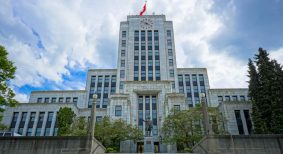BC Hydro will build approximately $250 million worth of capital projects in Richmond over the next decade to upgrade and expand the electricity grid to provide clean power for homes, businesses and transportation.
“We must build out B.C.’s electrical system like never before to power our homes and businesses, to power a growing economy and to power our future,” said Josie Osborne, minister of energy, mines and low carbon innovation. “Throughout Richmond, and in communities across B.C., these construction projects will create thousands of good jobs over the next decade and ensure that people have access to clean, affordable and reliable electricity, when they need it and where they need it.”
The plan reflects growing demand for electricity across sectors due to population growth and housing construction, increased industrial development, and people and businesses switching from fossil fuels to electricity, among other factors.
Richmond projects include:
- redevelopment of the Steveston substation that will power an additional 20,000-35,000 new homes and be in service by 2033;
- expansion of the Kidd 2 substation in North Richmond to power an additional 10,000-17,500 new homes and be in service by the end of 2027; and
- investments in new distribution capacity in Steveston and North Richmond to support projected load growth, driven by population growth, new housing and increasing electrification.
Richmond will also benefit from an additional $700 million in investments to reinforce the transmission system, which will improve reliability and increase capacity across Metro Vancouver.
In January 2024, the province announced BC Hydro’s updated 10-Year Capital Plan, which contains $36 billion in regional and community infrastructure investments throughout B.C., 50 per cent increase in investments over its previous capital plan.
“The City of Richmond is recognized as a climate-action leader through our commitment to sustainable energy and reducing the reliance on fossil fuels. Investments such as this support our initiatives to encourage clean energy and move us closer to our goal of achieving net-zero emissions in the community by 2050,” said Richmond Mayor Malcolm Brodie.










